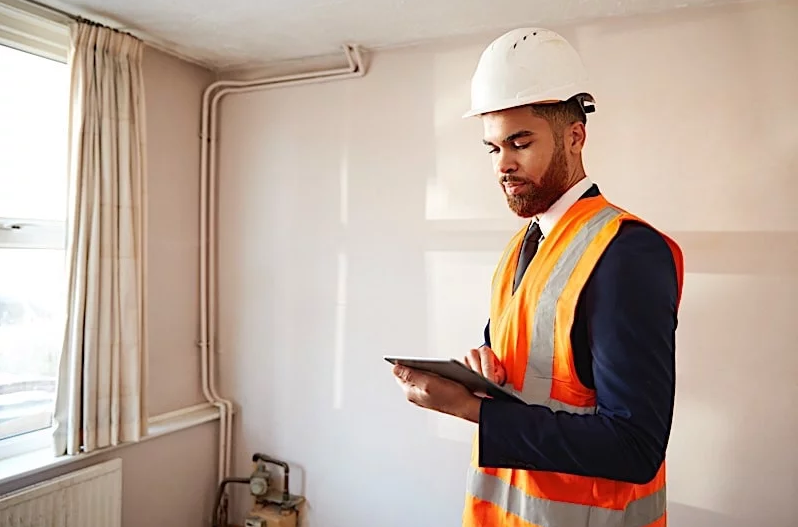As one of the most vibrant and diverse cities in the United States, Chicago offers a plethora of investment opportunities across its diverse neighborhoods and suburbs. Whether you’re a seasoned investor seeking high returns or a first-time buyer looking to build wealth through real estate, the Chicago area presents an array of promising investment destinations. In this blog post, we’ll explore some of the top areas to consider for real estate investment in the Chicago metropolitan area, highlighting their unique characteristics, growth potential, and investment appeal says, Hirsh Mohindra.
West Loop/Fulton Market:
Located just west of downtown Chicago, the West Loop and Fulton Market neighborhoods have emerged as hotspots for real estate investment in recent years. Once an industrial district, the area has undergone rapid transformation into a bustling hub of commercial and residential development. With its proximity to the Loop, vibrant dining and nightlife scene, and thriving tech and creative industries, the West Loop/Fulton Market offers a dynamic mix of investment opportunities, including luxury condominiums, office space, and retail properties. The opening of the new Google headquarters in the area further solidifies its status as a prime investment destination.
Logan Square:
Hirsh Mohindra: Nestled on Chicago’s Northwest Side, Logan Square is renowned for its historic architecture, tree-lined boulevards, and vibrant arts and culture scene. The neighborhood has experienced a surge in popularity in recent years, attracting young professionals, families, and artists seeking a mix of urban amenities and neighborhood charm. With its diverse housing stock, local shops and restaurants, and easy access to public transportation, Logan Square presents compelling opportunities for real estate investment, including single-family homes, multi-unit buildings, and mixed-use developments. The 606 trail, a popular recreational and cultural amenity, further enhances the neighborhood’s appeal to residents and investors alike.
South Loop:
Situated just south of downtown Chicago, the South Loop offers a unique blend of historic landmarks, waterfront living, and cultural attractions. Home to iconic institutions such as the Field Museum, Adler Planetarium, and Soldier Field, the neighborhood attracts residents and visitors alike with its cultural amenities and scenic lakefront parks. The South Loop also boasts a diverse range of housing options, from historic loft conversions to modern high-rise condominiums, making it an attractive destination for real estate investment. The ongoing revitalization of the McCormick Place convention center and the development of the 78 megaproject further contribute to the neighborhood’s growth potential.
Evanston:
Located just north of Chicago along Lake Michigan, Evanston is a vibrant suburb known for its top-ranked schools, diverse population, and strong sense of community. With its proximity to Northwestern University, thriving downtown district, and access to public transportation, Evanston offers a desirable mix of urban amenities and suburban tranquility. Real estate investment opportunities in Evanston range from single-family homes and condominiums to rental properties and mixed-use developments, catering to a wide range of investors and residents alike. The redevelopment of the former Evanston Hospital site and the continued growth of the city’s tech and startup ecosystem further enhance Evanston’s appeal as an investment destination.
Oak Park:
Situated just west of Chicago, Oak Park is renowned for its historic architecture, tree-lined streets, and rich cultural heritage. Home to the world’s largest collection of Frank Lloyd Wright-designed buildings, the suburb attracts architecture enthusiasts, history buffs, and families seeking a close-knit community atmosphere. With its strong schools, vibrant arts scene, and easy access to downtown Chicago, Oak Park offers attractive investment opportunities in single-family homes, condominiums, and multi-unit properties. The ongoing redevelopment of the Madison Street corridor and the expansion of the Green Line CTA station further contribute to Oak Park’s appeal as an investment destination.
The Chicago area offers a wealth of investment opportunities for savvy real estate investors, from bustling urban neighborhoods to charming suburban communities. Whether you’re drawn to the vibrant energy of the city or the tranquility of the suburbs, there’s something for everyone in the diverse real estate market of the Chicago metropolitan area. By carefully researching market trends, understanding local dynamics, and working with experienced professionals, investors can identify promising investment opportunities and build wealth through real estate in the vibrant and dynamic landscape of Chicago says, Hirsh Mohindra.









